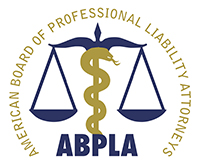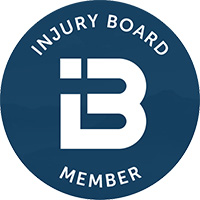
What Are the Different Types of Traumatic Brain Injury?
Traumatic Brain Injury (TBI) encompasses damage to the brain and skull. Required treatments and potential complications can vary greatly, depending on the location of the injury, how the injury was sustained, and the extent of damage done before medical intervention.
In cases of severe traumatic brain injury, the consequences can be life-altering. Victims of serious brain injury face the possibility of long-term or permanent physical or mental disability and a lifetime of special care. In the most tragic cases, brain injuries can be fatal.
The experienced brain injury lawyers at Mandell, Boisclair & Mandell have seen the devastation these injuries can inflict on the lives of our clients and their families. Over more than 45 years, we have built a reputation for excellence in traumatic brain injury claims, and have helped many victims of brain injury recover the full compensation they deserve for their physical, emotional, and financial losses.
If you or someone you love has sustained any type of traumatic brain injury, call Mandell, Boisclair & Mandell at (401) 273-8330 today. Located in Providence, we serve individuals and families living throughout Rhode Island.
Open vs. Closed Head Injuries
There are two types of traumatic brain injury: open and closed. Both can require immediate medical attention and have the potential for long-term consequences. However, they differ in several key aspects that can affect both treatment options and prognosis.
Open Head Injuries
An open head injury occurs when an external object fractures the skull and penetrates the brain tissue. These types of injuries are often the result of high-velocity impact or severe force and may be a consequence of:
- Gunshot Wounds
- Sharp Object Penetration
- Blunt Force Trauma
- Explosive Blasts
- Recreational Accidents
The immediate repercussions of an open brain injury can be catastrophic, often involving extensive and permanent damage to brain tissue. Complications including infection, bleeding, and cerebral edema (brain swelling) are often associated with open head injuries as well.
Closed Head Injuries
A closed head injury is one where the skull remains intact and is not penetrated. The severity of these injuries can vary from mild concussions to severe brain damage and often result from events including:
- Motor Vehicle Accidents
- Falls
- Sports-Related Injuries
- Bicycle Accidents
- Pedestrian Accidents
- Workplace Accidents
Closed head injuries can result in diffuse brain damage, meaning that the impact affects a broader area of the brain. Even if there are no immediate external signs of injury, internal complications like brain hemorrhage and swelling can be life-threatening.
The Three Levels of Traumatic Brain Injury
Traumatic Brain Injuries can be categorized into three primary levels of severity:
Mild TBI
This is a form of TBI that temporarily disrupts the function of the brain. It usually occurs after a hit to the head or a whiplash-type injury. Treatment typically includes rest, monitoring symptoms, therapy, and over-the-counter pain medication.
Symptoms of mild TBI may include:
- Headache
- Dizziness
- Nausea & Vomiting
- Blurred Vision
- Difficulty Focusing
- Short-Term Memory Loss
- Tinnitus
- Mood Changes
- Increased Sensitivity to Light and Noise
Moderate TBI
Moderate TBI Involves more pronounced brain damage, with longer-lasting and more severe symptoms. Treatment is likely to involve hospitalization, surgical intervention, and rehabilitation therapy.
Symptoms of moderate TBI may include those associated with concussion, along with:
- Loss of Consciousness
- Severe Headache
- Confusion & Disorientation
- Speech Impairment
- Motor Skill Difficulties
- Seizures
- Weakness or Numbness
- Clear Fluids Leaking From the Nose or Ears
Severe TBI
Severe TBI is the most critical level, often involving prolonged unconsciousness or amnesia after the injury. Treatment may include immediate emergency care, surgical intervention, long-term rehabilitation, and life-long medical support.
Severe TBI may produce symptoms similar to mild and moderate TBI, with the addition of:
- Prolonged Unconsciousness
- Respiratory Issues
- Dilated Pupils
- Loss of Muscle Control
- Inability to Awaken from Sleep
- Non-Responsive Reflexes
- Spikes in Blood Pressure
- Extreme Mood Swings
- Multiple and Long-Lasting Seizures
Within each level of TBI are several different types of traumatic brain injury. The type of injury sustained and the amount of time between damage and medical assistance will play a role in the extent of damage done. Sadly, damaged brain cells cannot be repaired. Swift intervention and stabilization are essential for the most positive outcomes.
The Lifetime Costs of Traumatic Brain Injury
Traumatic Brain Injuries can have a profound impact on your quality of life. They can also carry substantial financial burdens. These costs can include medical care, long-term rehabilitation, loss of income, and much more.
When you come to us for your TBI claim, we will carefully evaluate your damages to determine the value of your claim. This may include looking at things like:
Direct Medical Costs
- Immediate Treatment: Emergency room visits, surgical interventions, and initial hospital stays can cost hundreds of thousands of dollars.
- Rehabilitation: Long-term care involving physical therapy, occupational therapy, and psychological counseling can add up significantly.
Indirect Costs
- Loss of Employment: Depending on its severity, a TBI could lead to temporary or permanent job loss. The lifetime loss of earning potential can be in the millions.
- Lifestyle Adaptations: Modifications to homes or vehicles to accommodate disabilities can also be a significant financial burden.
Emotional and Social Costs:
- Pain & Suffering: Traumatic brain injury can cause profound emotional and physical suffering. Issues such as depression, anxiety, and PTSD are common.
- Quality of Life: TBIs often result in emotional and social costs, including family stress, reduced participation in social activities, and the loss of relationships. Although these are harder to quantify, they can carry a substantial emotional toll.
Brain injury can be very costly in economic, physical, and emotional ways. When your injury is the result of someone else’s negligence, you have every right to hold them accountable for all related damages.
The Providence brain injury attorneys at our firm have decades of experience and a proven history of results. We are here to listen to your story, provide a straightforward and honest review of your options, and help you determine the best way to move forward.
We Can Assist With All Types of Traumatic Brain Injury Claims
If you or someone you love needs a brain injury lawyer, contact Mandell, Boisclair & Mandell to schedule a FREE and confidential consultation at our Providence office. Our attorneys assist individuals and families struggling with various types of traumatic brain injury throughout Rhode Island.





























